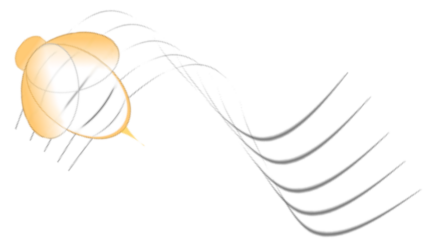Singing Schubert
by Susanne Krekel
Schuberts Reise nach Atzenbrugg by Johanna Doderer at the Gärtnerplatztheater, in Munich.
Munich, March 30 2023 - Writing an opera about a composer, and not just any composer at that, writing about Schubert, is rather a risky undertaking, but the show we saw tonight proves it to be possible.
‟Isn’t it the very essence of art, to bring back to life what is dead? ‟ asks one of the characters, and yes, it is the art of Peter Turrini (libretto) and Johanna Doderer (music) to bring this Schubert back to life. The story is simple and complex at the same time: Schubert and a group of friends are off for a day trip to Atzenbrugg. Among the guests is Johanna von Weisenborn, with whom he is very much in love. Does she love him too? We can guess a ‟maybe‟, but in the end, she will get engaged to another Franz, Franz von Tassié, a handsome schmoozer. All along the way, we will witness Schubert’s dreams, his discussions about art and music, there will be moments of mirth and moments of utter depression. The atmosphere is far from a jolly Biedermeier idyll: groups of invalids, victims of the Napoleon wars, are haunting the countryside, begging and sometimes menacing; the friends cannot talk freely, an incautious word might send all of them into Metternich’s prisons. The set is rather dark, forests, villages, countryside, are only indicated in the background.
Just as sometimes a Schubert melodie will start to make itself heard more and more clearly through Johanna Doderer’s composition, Schubert will distinguish himself more and more clearly from his fellow- travellers, until he is occupying centre stage, scenically as well as musically. Daniel Prohaska interprets him most effectively. Unobtrusive at first, timid and shy, he is hardly to be noticed among the other protagonists, more boisterous by far. Little by little, he will open to his friend, the painter Kupelwieser, interpreted by Mathias Hausmann, powerful and present as always. Schubert first asks him to paint a flattering portrait of him, because he thinks himself to be ugly. Later, he talks about the quicksilver cure he had to take, and what it did to him. ‟Beethoven is better than me,” he says, ‟because when I had to take that cure, all the notes started to run away from me, Beethoven, he, has still all the notes in his head.” - In one dream, he sees himself saving lovely Josepha from some danger, dressed as Superman, with the uppercase S on his chest - Super-Schubert, we think, yes, that makes sense. In another dream, a crazy violinist dances through a classroom, abusing and mistreating his pupils, and we can easily imagine the life of little Franz in this atmosphere. And thus, little by little, a realistic and clear image of the composer emerges, until we see him at the end, naked in his tortured humanity, deeply touching and admirable, disappearing into his music. Daniel Prohaska, as we said before, is grandiose in this role. Dedicated down to his fingertips, he sings and plays with total abandon, mastering with precision the complex score.
The other characters remain a bit in his shadow, although they are all of them quite interesting as well. The other Franz is another tenor, sung by Alexandros Tsilogannis, who seems a bit tired tonight. Mária Celeng is a charming and playful Josepha. Among the travellers are also the singer Vogl, sung by the wonderful Timos Sirlantzis; Caroline Helmer, a cellist, sung by Anna-Katharina Tonauer; an artistic whistler with her mechanical bird (Andreja Zidaric); the sausage-maker Dorothea Tumpel (Florine Schnitzel), and the music dealer Nepomuk Feder (Daniel Gutmann). The nightmare character of Schubert’s father is played, sung, and danced by Holger Ohlmann with nightmarish energy.
An admirable cast, a libretto that is just, credible, and deep, a complex, dramatic and variegated score, always in keeping with the text, a dedicated and energetic conductor, attentive to the score’s details (Michael Brandstätter guides the Staatstheater am Gärtnerplatz orchestra) - here is all it takes for a memorable time. Yet the public is not too numerous tonight, the applause a bit hesitant, so we wish this splendid piece the sold-out halls and the thunderous acclaim that it deserves.


